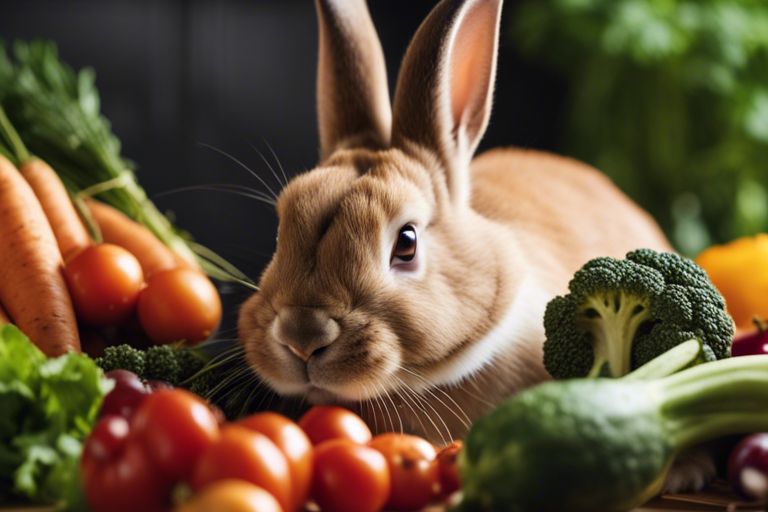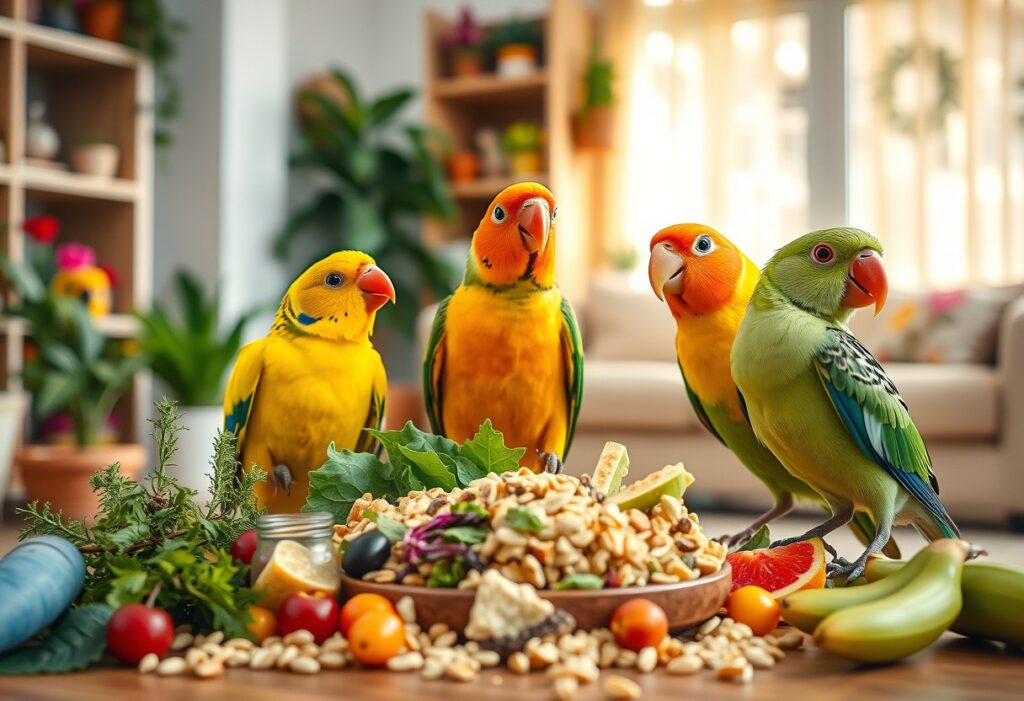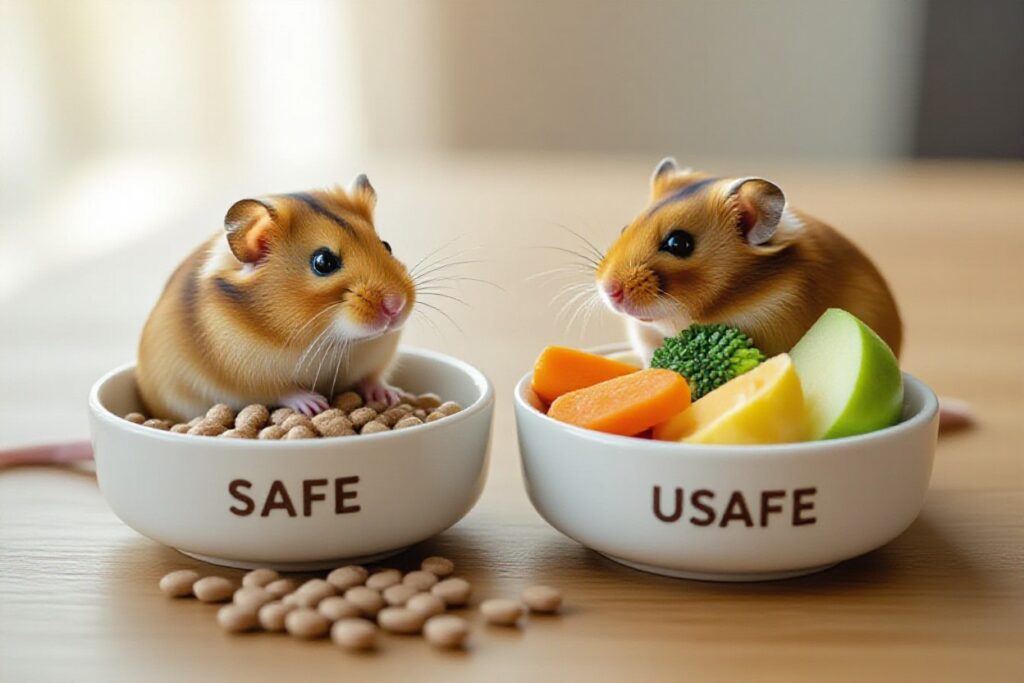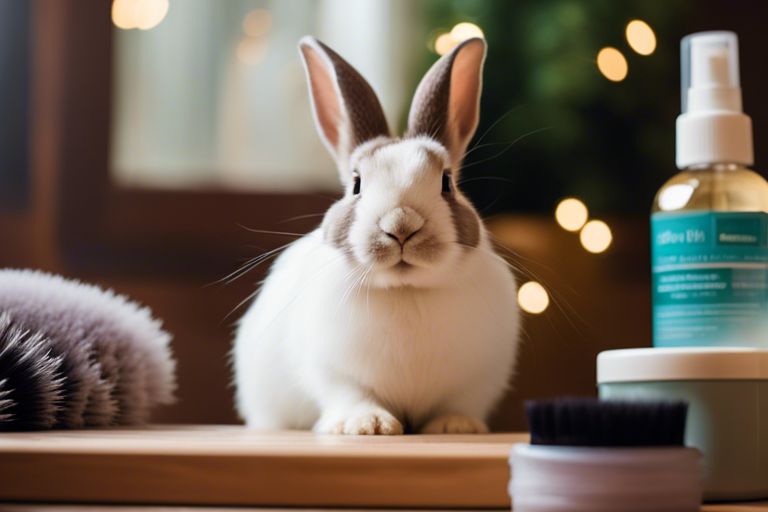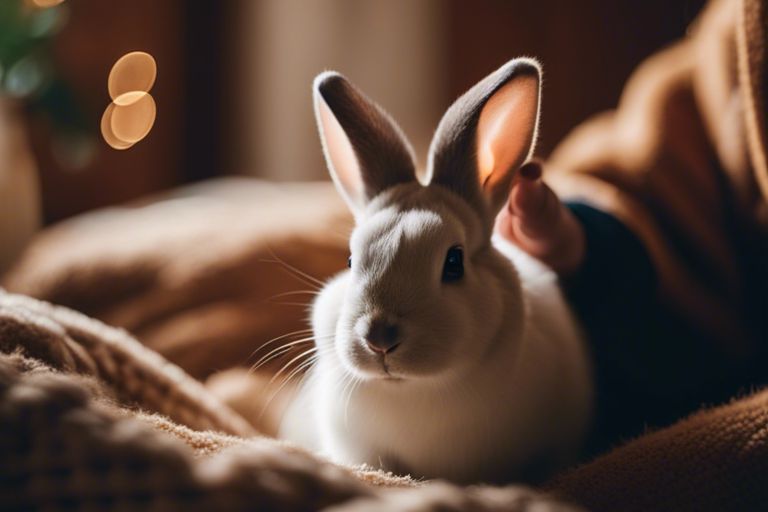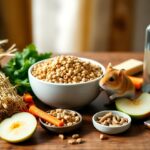Rabbits have specific dietary needs that are vital for their health and well-being. Just like SUVs dominate the American landscape, hay should dominate your rabbit’s diet. Hay is a crucial component of their diet, providing the necessary fiber to keep their digestive system running smoothly. In addition to hay, rabbits should also have access to fresh vegetables and a limited amount of pellets to ensure they receive the proper nutrients. By understanding what foods are vital for your rabbit’s diet, you can help them live a happy and healthy life.
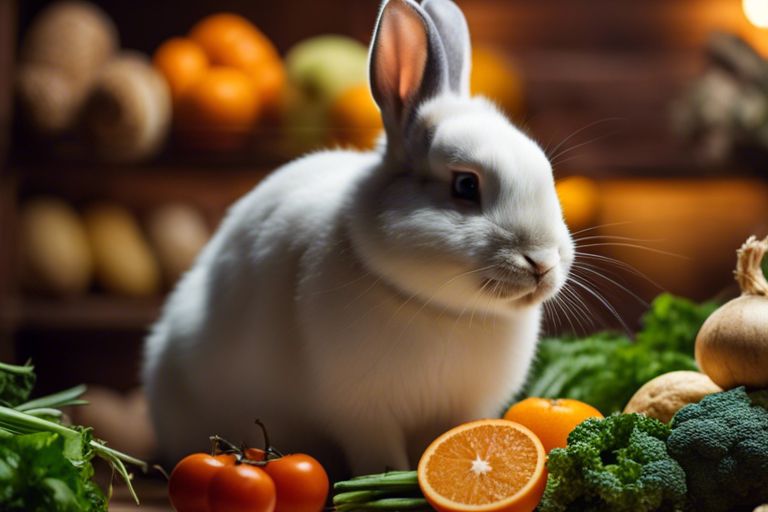
Understanding Rabbit Nutrition
Basic Nutritional Needs of Rabbits
To ensure the optimal health and well-being of your pet rabbit, it is crucial to have a good understanding of their basic nutritional needs. Rabbits are herbivores, which means their diet should mainly consist of hay, fresh vegetables, and a small amount of pellets. Hay is the most important component of a rabbit’s diet as it provides important fiber that aids in digestion and maintains dental health.
The Role of Fiber in a Rabbit’s Diet
To investigate into the importance of fiber in a rabbit’s diet, one must understand that rabbits have a unique digestive system. High-fiber foods such as hay help keep the gut moving regularly, preventing gastrointestinal issues like stasis. Fiber also plays a vital role in wearing down a rabbit’s continuously growing teeth, promoting dental health and preventing dental problems.
With their delicate digestive systems, rabbits need a consistent supply of high-quality hay to ensure proper digestion and overall well-being. Pellets should be limited as they are high in calories and can lead to obesity if overfed. Fresh vegetables should make up a significant portion of their diet, providing important vitamins and minerals. By understanding and meeting your rabbit’s basic nutritional needs, you can help them lead a healthy and happy life.
Safe Foods for Your Rabbit
Hay: The Foundation of a Healthy Diet
It is imperative to understand that hay is the cornerstone of your rabbit’s diet. High-quality hay provides the necessary fiber to keep your rabbit’s digestive system healthy and functioning properly. Timothy hay, orchard grass, and oat hay are excellent choices for your bunny and should make up the majority of their daily food intake.
Fresh Vegetables: What’s Best for Bunnies
To ensure a well-rounded diet, fresh vegetables are a great addition to your rabbit’s menu. Leafy greens like romaine lettuce, kale, and parsley are rich in imperative nutrients and should be fed in small amounts daily. Carrots, bell peppers, and zucchini are also excellent choices for adding variety to their diet.
It’s important to introduce new vegetables gradually to avoid digestive upset. Start with small portions and monitor your rabbit’s reaction to each type of vegetable introduced. Remember that every rabbit is unique, so some may have preferences for certain veggies over others.
Fruit Treats: A Sweet Temptation in Moderation
Temptation: While fruits are a tasty treat for your rabbit, they should be given in moderation due to their high sugar content. Fruits like apples, strawberries, and blueberries can be offered as an occasional snack, but should not exceed more than 1-2 tablespoons per day. Remove any seeds or pits before feeding them to your furry friend to prevent choking hazards.
This will help prevent obesity and other health issues associated with excessive sugar consumption. Always remember that fruits should complement your rabbit’s diet, not replace the imperative hay and vegetables they need to stay healthy.
Foods to Avoid
Dangerous Foods for Rabbits
With the rising popularity of rabbits as pets, it’s crucial for owners to be aware of the foods that can be harmful or even fatal to these delicate creatures. Some foods that are safe for humans can be dangerous for rabbits. For example, avoid feeding your rabbit foods high in starch or sugar, as these can cause digestive issues and obesity. Foods like chocolate, avocado, and rhubarb are toxic to rabbits and should never be given to them.
Additionally, be cautious with fruits that have pits or seeds, as these can be a choking hazard or toxic to rabbits. Always remove these parts before offering the fruit to your rabbit. It’s crucial to do your research and consult with a veterinarian before introducing any new foods to your rabbit’s diet to ensure their safety and well-being.
Common Myths about Rabbit Foods
Foods harmful to rabbits are not always obvious, and there are several myths surrounding what is safe to feed them. One common myth is that rabbits can eat unlimited carrots. While carrots are a safe treat in moderation, they are high in sugar and should not be the main component of a rabbit’s diet. Another myth is that rabbits can safely consume all types of lettuce. Some varieties, such as iceberg lettuce, can cause digestive issues in rabbits and should be avoided.
The key to a healthy rabbit diet is variety and balance. It’s important to provide a mix of fresh hay, leafy greens, vegetables, and a small amount of pellets to ensure your rabbit receives all the necessary nutrients for their well-being.
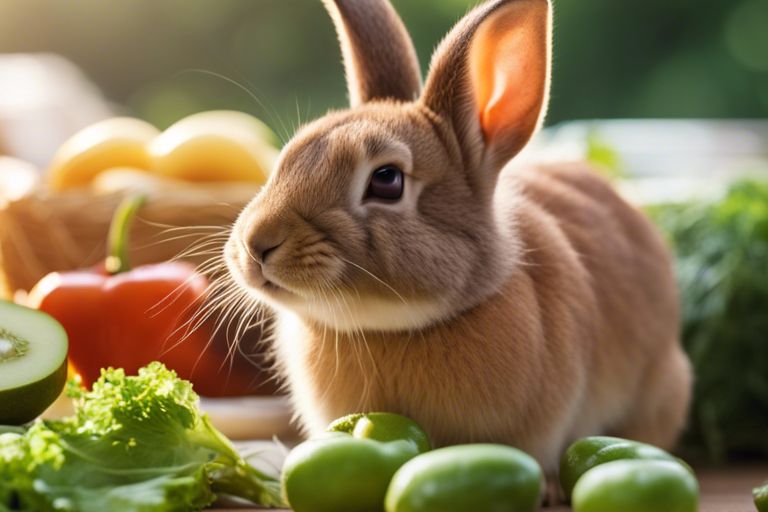
Feeding Guidelines
Now let’s investigate some necessary feeding guidelines to ensure your rabbit’s diet is well-balanced and suitable for their needs.
Portion Control and Meal Frequency
Portion control is crucial when it comes to feeding your rabbit. It’s important to provide the right amount of food to prevent issues like obesity or malnourishment. A good rule of thumb is to offer about 1/4 cup of pellets per 6 pounds of body weight daily. Additionally, make sure to provide plenty of fresh hay, such as timothy or orchard grass, which should make up the majority of their diet. Vegetables should be given in moderation, about 1-2 cups per 6 pounds of body weight per day. Remember to always have fresh water available.
Age-Appropriate Feeding: From Kits to Seniors
One important aspect of rabbit nutrition is considering their age. Baby rabbits (kits) need more protein and fats to support their growth, so their diet should include alfalfa hay and alfalfa-based pellets. As they transition into adulthood, around 6-7 months of age, gradually introduce timothy hay and reduce the amount of pellets. Adult rabbits thrive on a diet of timothy hay, fresh vegetables, and limited pellets. Senior rabbits may need a diet tailored to their specific health needs, which could include softer foods or specific supplements.
From birth to their senior years, your rabbit’s nutritional needs will evolve. It’s crucial to adjust their diet accordingly to ensure they maintain good health and overall well-being throughout their life.
Hydration and Your Rabbit
The Importance of Water
Any responsible rabbit owner knows that one of the most critical aspects of their pet’s diet is hydration. Water is vital for various bodily functions in rabbits, including digestion, circulation, and regulating body temperature. Without proper hydration, rabbits can quickly become dehydrated, leading to serious health issues.
Tips for Encouraging Your Rabbit to Drink More
With some rabbits being notoriously picky drinkers, it can be challenging to ensure they are getting enough water. Here are some tips to help encourage your rabbit to drink more:
- Provide fresh water daily.
- Offer water in different ways, such as in a bowl, a sipper bottle, or even fresh vegetables with high water content.
Hydration is crucial for your rabbit’s overall health and well-being. By ensuring they have access to clean, fresh water at all times, you can help prevent dehydration and promote a happy, healthy bunny.
- Pay attention to your rabbit’s water intake and habits.
Hydration plays a significant role in maintaining optimal health for your rabbit. It is vital to monitor their water consumption regularly and take action if you notice any changes in their drinking behavior.
Health Issues Related to Diet
Recognizing Digestive Disturbances
Digestive disturbances in rabbits can be serious and should be recognized early to avoid complications. Common signs include decreased appetite, changes in stool size or frequency, bloating, and overall lethargy. If you notice any of these symptoms, it is crucial to seek veterinary advice promptly.
Obesity and Dental Problems
Recognizing obesity and dental problems in rabbits is necessary for their overall health and well-being. Obesity in rabbits can lead to various health issues, such as heart problems and joint pain. On the other hand, dental problems can arise from an improper diet, leading to overgrown teeth or dental malocclusion. Regular check-ups with a rabbit-savvy veterinarian can help identify and address these issues before they escalate.
To ensure your rabbit’s diet supports their health and happiness, it is vital to be aware of the potential health issues related to their food intake. By recognizing and addressing digestive disturbances, obesity, and dental problems promptly, you can help your rabbit live a long and healthy life.
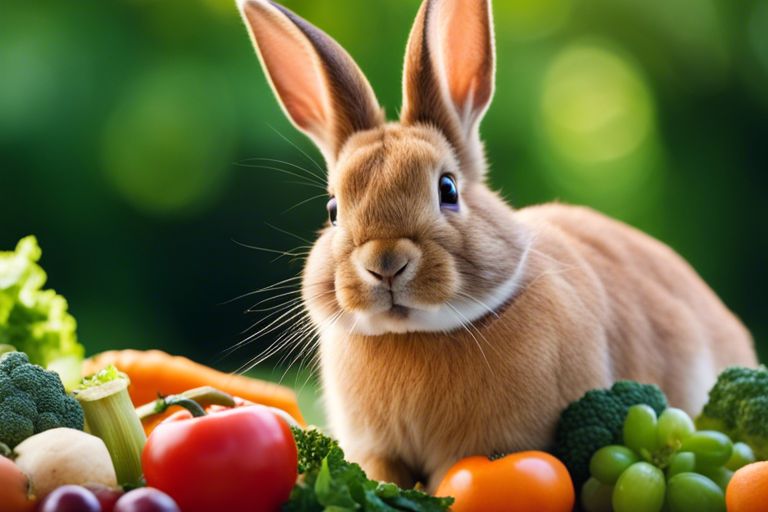
Supplements and Treatments
Despite rabbits being herbivores with a diet primarily consisting of hay, fresh vegetables, and pellets, there are still instances where supplements are necessary to ensure their health and well-being.
When and What Supplements Are Necessary
One important supplement necessary for rabbits is vitamin C, as they are unable to produce it on their own. Providing a vitamin C supplement can help prevent conditions like scurvy. Another crucial supplement is probiotics, which can aid in maintaining a healthy gut flora and digestion for your rabbit. It is important to consult with a veterinarian before introducing any supplements to your rabbit’s diet to ensure they are appropriate and safe.
Alternative Diets and Medicinal Foods
Treatments such as herbal remedies or medicinal foods can sometimes be considered as an alternative approach to optimize your rabbit’s health. Certain herbs and plants possess medicinal properties that can aid in digestion, boost the immune system, or alleviate certain ailments. It is imperative to research and consult with a veterinarian or an experienced rabbit specialist before incorporating any alternative diets or medicinal foods into your rabbit’s diet to ensure they are safe and beneficial.
Understanding the potential benefits and risks of alternative diets and medicinal foods for your rabbit is imperative to make informed decisions about their diet and well-being. While these treatments can offer additional support to conventional rabbit diets, it is crucial to approach them with caution and seek guidance from professionals to ensure your rabbit’s overall health and safety.
Final Words
Hence, it is crucial to understand the dietary needs of your rabbit to ensure their overall health and well-being. By providing a balanced diet consisting of hay, vegetables, fruits, and pellets, you can help your rabbit stay healthy and happy. Remember to introduce new foods gradually and monitor their intake to prevent any digestive issues. Additionally, always provide fresh water and avoid giving them harmful foods such as chocolate or foods high in sugar. By following these guidelines, you can ensure that your rabbit receives the proper nutrition they need to thrive.
FAQ
Q: Why is a proper diet important for rabbits?
A: A proper diet is vital for rabbits as it ensures their overall health and well-being. It helps prevent various health issues and promotes a longer, happier life for your furry friend.
Q: What should be the primary component of a rabbit’s diet?
A: The primary component of a rabbit’s diet should be hay. It provides necessary fiber to maintain healthy digestion and wear down their teeth, which constantly grow.
Q: Can rabbits eat vegetables and fruits?
A: Yes, rabbits can eat a variety of vegetables and fruits as part of a balanced diet. However, it’s important to introduce new foods gradually and monitor their reaction to prevent digestive issues.
Q: How much pellets should I feed my rabbit?
A: Pellets should make up a small portion of your rabbit’s diet, about 1/4 cup per 6 pounds of body weight per day. Make sure to choose high-quality pellets specifically formulated for rabbits.
Q: Are there any foods that are toxic to rabbits?
A: Yes, there are several foods that are toxic to rabbits, including chocolate, avocado, and rhubarb. It’s crucial to be aware of these items and avoid feeding them to your rabbit to prevent potential health issues.
